Liturgical Calendar
Green vestments
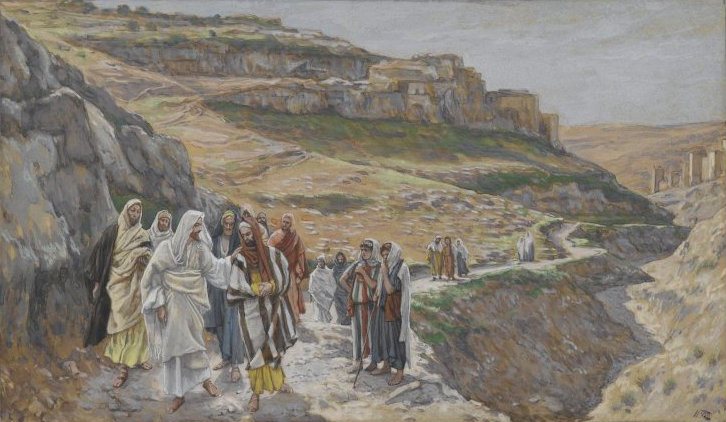
The lessons of this Sunday’s office are often taken from Ecclesiasticus or Job, according as the Sunday falls in August (4th or 5th Sunday) or September (1st or 2nd Sunday).
Commenting on the former, St. Gregory says: “There are men all athirst for passing joys who are ignorant or indifferent where eternal blessings are concerned. Poor wretches! They congratulate themselves on possessing the good things of this life without regretting those of the world above, which they have lost. Fashioned for light and truth, they never lift up the eyes of the soul; never betray the smallest desire or longing for the contemplation of their eternal home. Giving themselves over to the pleasures among which they are thrown, they bestow their affection upon a dreary place of exile as if it were their fatherland; and surrounded by darkness, they are full of rejoicing as if they were illumined by a brilliant light. On the other hand the elect, in whose eyes fleeting goods are of no value, seek after those for which their souls were made. Kept in this world by the bonds of the flesh, each, none the less, is carried in spirit beyond it while making the wholesome resolve to despise the passing things of time and to desire the things which endure for eternity.”
As for Job, he is set before us in Holy Scripture as the very type of a man detached from the goods of this world. ” If,” said he, “we have received good things at the hands of God, why should we not receive evil?… The Lord gave, and the Lord hath taken away … Blessed be the name of the Lord.”
The proper of to-day’s Mass is inspired by the same thoughts The Holy Ghost, whom the Church received at Pentecost, has formed a new man in us who resists the outward manifestations of the old man, namely covetousness and the search for riches, in order to satisfy it. The Spirit of God is a spirit of liberty, who by making us children of God, our Father, and brethren of Jesus our Lord, frees us from the slavery of sin and the tyranny of concupiscence. ” They that are Christ’s, ” says St. Paul, ” have crucified their flesh with the vices and concupiscences.” ” Walk in the spirit, and you shall not fulfil the lusts of the flesh : for the flesh lusteth against the spirit and the spirit against the flesh; for these are contrary one to another” (Epistle). And our Lord says: “No man can serve two masters; for either he will hate the one and love the other, or he will sustain the one and despise the other. You cannot serve God and Mammon.”
St. Augustine, in expounding this passage, says: “Whoever is the slave of riches (and we know that only too often they are the source of pride, avarice, injustice and lust)1 is subject to a hard and wicked master. Entirely at the mercy of his passions, he is under the tyranny of the devil. Certainly he does not love him, for who can love the devil? But all the same he endures him. On the other hand he does not hate God, for this, no man’s conscience will let him do, but he despises Him, that is, he does not fear Him, as if he were sure of His goodness.
“The Holy Ghost puts us on our guard against this negligence and pernicious sense of security, when He says by the Prophet: ‘Say not: The mercy of the Lord is great.’ (Ecclesiasticus, 5:6), but know that ‘the benignity of God leadeth thee to penance’ (Romans 2:4). For who is more merciful than He who pardons the sins of all who turn to Him, and who gives the fertility of the olive to the wild branch? And who is more severe than He who has not spared the natural branches but because of their infidelity has cut them off? If anyone wishes to love God and to contrive never to offend Him, let him not think that he can serve two masters; let him have a single intention free from duplicity. Thus must you think about the Lord’s goodness, and seek Him in simplicity of heart. Therefore,” he goes on, “I tell you not to have any superfluous anxiety as to what you will eat and what you will put on, lest perhaps, without seeking superfluities, the heart may become double, and in pursuing what is necessary, your intention may be turned aside to seek your own interests rather than the advantage of your neighbour.” (3rd Nocturn).
Before all, then, let us seek the kingdom of God, and His justice and glory (Gospel, Communion); let us put all our hope in the Lord for He is our protector (Introit); it is He who sends His angels to deliver those who serve Him (Offertory), and who upholds our weak human nature, for without this divine assistance it would surely fail (Gospel). It is the Eucharist which wins for us the favour of Almighty God (Secret) which by strengthening us makes our salvation sure (Postcommunion).
Let us love, above all things, to pray in the courts of the Lord (verse of the Introit), and to go there to sing the praises of God our Saviour (Alleluia). Then let us look after our temporal affairs but without being unduly anxious about them. Such solicitude would be an outrage to our heavenly Father who loves His children, and who lets them want for nothing provided they seek His glory before all else.
1. “Do not,” asks St. John Chrysostom, “these daily feasts, these orgies, these theatres, these riches, bear witness to the insatiable greed of your evil passions?” (2nd Nocturn of the fifth Sunday of August, which sometimes coincides with this Sunday).
2. These words are taken from the 1st Nocturn of the fifth Sunday of August: “Say not: The mercy of the Lord is great; He will have mercy on the multitude of my sins, for mercy and wrath quickly come from Him: and His wrath looketh upon sinners. Delay not to be converted to the Lord: and defer it not from day to day. For His wrath shall come on a sudden: and in the time of vengeance, He will destroy thee. Be not anxious for goods unjustly gotten: for they shall not profit thee in the day of calamity and revenge.” (See 2nd Nocturn.)
Semi-double Green vestments
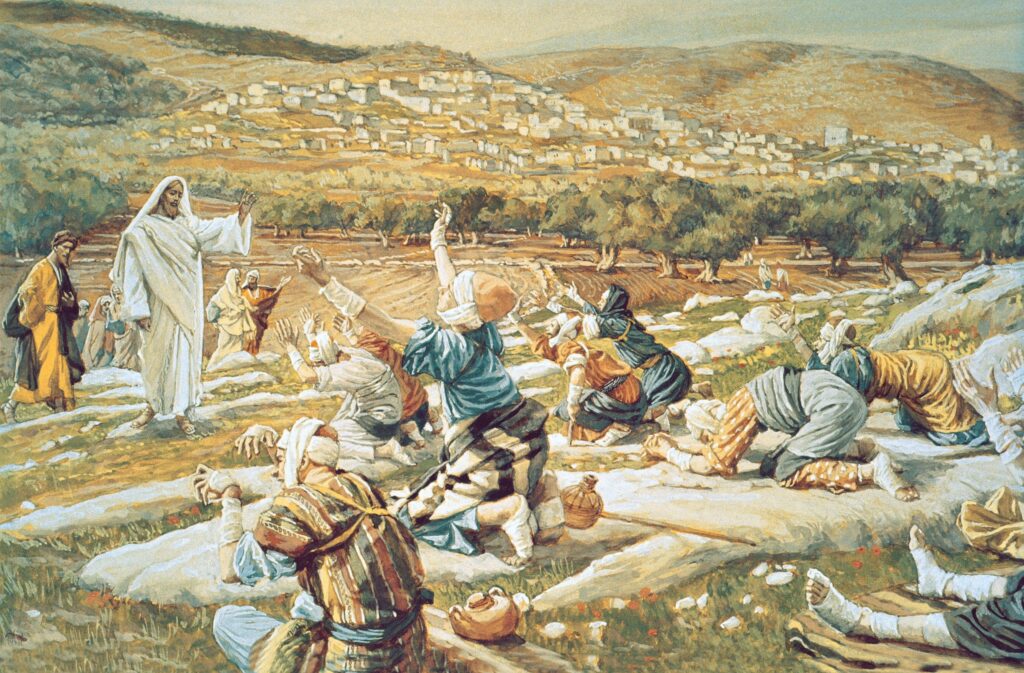
Continuing with the reading of the sapiential books which began on the first Sunday of August the Church orders the Book of Ecclesiastes to be commenced in the breviary lessons on the second Sunday of August.
“Vanity of vanities,” says the sacred author, “and all is vanity. There is no remembrance of former things: nor indeed of those things which hereafter are to come, shall there be any remembrance within them that be in the latter end. I have seen all things that are done under the sun: and behold all is vanity and vexation of spirit. The perverse are hard to be corrected, and the number of fools is infinite ” (1st Nocturn)
“As soon,” says St. John Chrysostom, “as Solomon was enabled to perceive the divine Wisdom, he uttered this sublime exclamation, worthy of heaven itself: ‘Vanity of vanities, and all is vanity.’ You, in your turn can bear a like witness, if you will. It is true that Solomon in past ages was not bound, to seek wisdom so diligently as we, since the Old Law did not regard the enjoyment of superfluities as vanity, though none the less, men could see that they were worthless and deserving of contempt. But we are called to more perfect virtues, scale loftier heights, and give ourselves to nobler practices. In a word, what can we say, but that we are commanded to regulate our conduct after the pattern of heavenly virtues which have nothing fleshly about them and are entirely spiritual” (2nd Nocturn).
These heavenly virtues are principally the theological ones, “faith, hope, and charity”, for which we ask God in the Collect, so that we may love what He commands (Collect). Moreover, for this reason, the Church takes for today’s Epistle a passage from St. Paul’s Epistle to the Corinthians, the subject of which is faith in Jesus Christ, a faith which works by charity, and which makes us, like Abraham of old, put our hope in this divine Redeemer. For it is by this faith, manifested in good works and trust in God, that souls, covered with the leprosy of sin, are cured, as we are reminded in today’s Gospel. The ten lepers, who in some sense stand for the transgressions of men against the ten commandments, see from afar their divine Healer, and put their trust in Him. “Master, have mercy on us.” Their faith issues in works, for when our Lord puts them to the test, telling them: “Go show yourselves to the priest,” they obey without hesitation and are cured on the way. But the cure is only confirmed in the case of one of them who returns to Jesus to express his thanks. “And one of them, when he saw that he was made clean, went back, with a loud voice glorifying God; and he fell on his face before His feet, giving thanks.” And Jesus said to him: “Arise, go thy way, for thy faith hath made thee whole.”
Hence, we learn that it is faith in Christ that saves souls. For here is St Augustine’s interpretation of this gospel in the homily for today: ” Our Lord does not say of those men who were freed from leprosy that they were cured but purified; for leprosy alters the color of the skin without, generally, taking away the integrity of the senses and members of the body.
It is not, therefore, absurd to see in the lepers, a type of those who, being without the science of the true faith, profess the changing doctrines of error. For they do not conceal their ignorance, but bring it out into the light, making it pass for superior knowledge and showing it off in boastful talk. Now there is no false doctrine which does not contain a mixture of truth. These truths and errors, mingled haphazard, in a single discussion or narrative, are like differences of color appearing in the same body, and represent leprosy which covers human bodies with spots, forming with the sound parts, diversity of color.
This sort of leper the Church is bound to exclude, so that, if possible, seeing themselves thrust far from her, they may set themselves to call, with loud cries upon Christ, like the ten men that were lepers, who stood afar off, and lifted up their voices saying: ‘Jesus, Master, have mercy on us.’
Now if our Lord worked cures in person, He leaves to the Church the task of spreading His doctrine and instructing, both by word and pen. Thus St. Paul was sent to Ananias to receive, from the duly constituted priesthood of the Church, the sacrament of faith. And later, the Apostle will go up to Jerusalem with Barnabas and Titus so that by jointly professing the doctrine of the faith before the congregation by this very reunion they might show that they had one single doctrine, excluding every kind of variation. It is about this that St Paul wisely warns the Corinthians: “I beseech you brethren, that you all speak the same thing” (Matins).
The Gospel narrative also foretells the rejection of the Jews who were ungrateful toward Him who came to cure them, while the Gentiles have been faithful. For among the ten lepers, nine were Jews and only one was not, and it was to this single Samaritan who came to thank our Lord that He said: “Thy faith hath made thee whole,” showing that it is not only to the children of Abraham by blood that this promise has been made, but also to those who are his children because they share his faith in Jesus Christ, for it is by this faith that the promise of eternal life which was made to Abraham is extended to all nations. So the prayer after the third prophecy on Holy Saturday reminds us that God “by the paschal sacrament (Baptism)” made His servant Abraham, according to His oath, ” the father of all nations”, while the fourth prayer adds: “Grant that all the nations of the world may become the children of Abraham and partake of the (lost) dignity of the people of Israel.”
The Gentiles occupy the place of the Jews. “The nine,” says St. Augustine, “swollen with pride, thought they would humiliate themselves by giving thanks, whereas by not doing so they are reproved and rejected from the unity which exists in the number ten (there were ten lepers), while the only one who thanks is praised by the only Church In the same way the Jews by their pride lost the kingdom of heaven in which dwells the greatest unity; while the Samaritan by submitting to the King, by his act of thanksgiving has preserved the unity of the kingdom by his devotion full of humility” (Matins)
The Jews will enter the kingdom of heaven all together at the end of time, believing in our Lord at last, after finding that they have been deceived in following Antichrist, a fact which is alluded to in the Introit, which contains a prayer that their exclusion from the Church may not be irrevocable: “Have regard, O Lord, to Thy covenant and forsake not to the end the souls of Thy poor: . . . O God, why hast Thou cast us off unto the end: why is Thy wrath enkindled against the sheep of Thy pasture?” And again, the Church beseeches almighty God “to look with favor upon His people, and appeased by their oblation, forgive them their sins ” (Secret).
As for the Gentiles, they say to the Lord that all their hope is fixed on Him (Offertory), for He is to become their refuge from generation to generation (Alleluia), feeding them with food from heaven as He did the Hebrews in the wilderness, and giving them the manna, which contains in itself all sweetness (Communion).
Every parish priest celebrates Mass for the people of his parish.
Semi-double Green Vestments
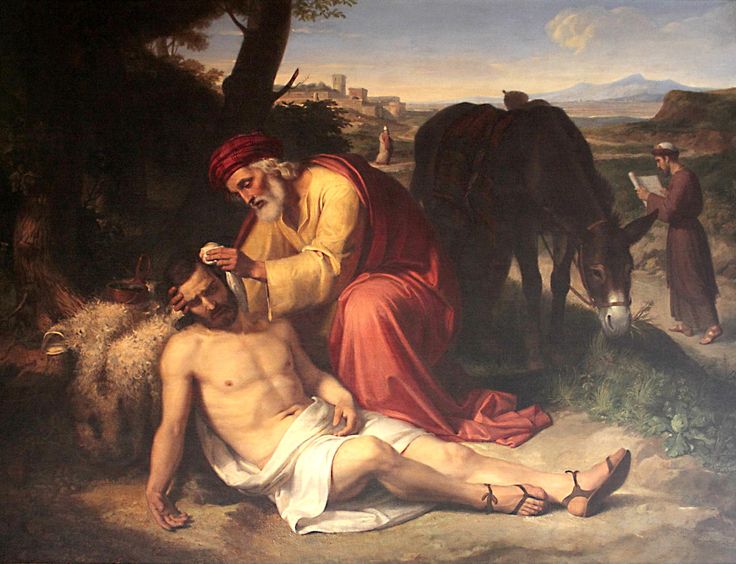
The greatest of the commandments of the ancient Alliance was already the love of God and that of one’s neighbor. It is necessarily the same divine and perfected love which the New Dispensation demands of us (Gospel). Let us beware of the Pharisaical interpretation of the law which would reduce our religious duties to a few outward practices: “The letter kills,” says St. Paul, “but the spirit quickens” (Epistle).
The Jews only considered as their neighbors the people of their race, and the parable of the good Samaritan shows us that our neighbor is every man, known or unknown, friend or enemy, to whom we are united by the bonds of charity taught us by Jesus in healing our wounds (Gospel). Union in Christ which will make us love even those who hate us and pardon those who have wronged us because God is in them or may come to them, that is the true love of one’s neighbor.
Double of the First Class with an Octave White Vestments
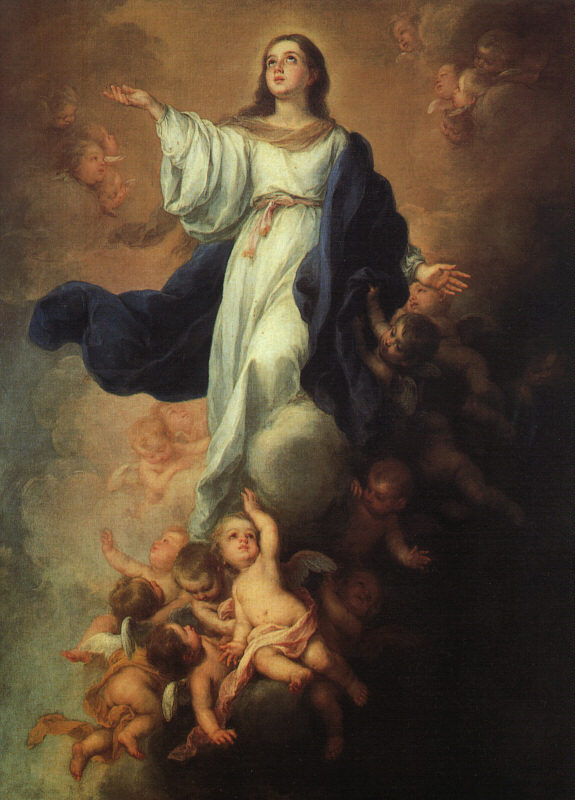
Just as a little child, on the natural level wishes to be in the presence of his mother, and give her little gifts and presents to show his love for her; so, we must always desire to always be in the presence of Mary–our spiritual Mother–and to present to her little tokens of our love and devotion towards her. How often do we think of Mary truly as our Mother? St. Alphonsus reminds us that not only do we have a Queen in Heaven, but we have a Mother. As He died upon the cross, Christ gave His mother to us through His apostle–St. John. Mary is truly our mother and we are truly her children.
Today, Mary our Mother is gloriously assumed into Heaven–body and soul. Like little children then we should call out to her and seek her until we are united in Heaven body and soul. We should tell her often how much we love her by praying her Rosary each day, by consecrating ourselves to her, and above all by going to Mass on her feast days and receiving her Son in Holy Communion. This childlike devotion to our Blessed Mother is necessary now more than ever.
Our world is in desperate need of Christ. In order to bring Him into the world, the Church needs families and individuals who are completely devoted to the Blessed Virgin Mary. For as Christ came to redeem the world through Mary, He will continue His saving action in the world through Mary and those consecrated to her.
This feast is the most ancient and solemn of the Cycle of Mary (6th century).
Admitted to the enjoyment of the delights of eternal contemplation, she chose at the feet of the Master the better part which shall not be taken aways from her (Gospel, Communion). The Gospel of the Vigil was formerly read after today’s Gospel, in order to show that the Mother of Christ is happy among all others because better than all others, “she listened to the word of God.” This word, the Word, the divine Wisdom which, under the Old Law, dwelt among the people of Israel (Epistle), dwelt in Mary under the New Law. The Word became incarnate in the womb of the Blessed Virgin, and now amid the splendor of the heavenly Sion He fills her with the delights of the beatific vision.
The Church, on earth, like Martha, has to care for the necessities of this present life, but she also, like her, invokes the help of Mary (Collect, Secret, Postcommunion).
A procession has always been a part of the feast of the Assumption; at Jerusalem it was a pilgrimage to the tomb of the Blessed Virgin.
At Rome from the 7th to the 16th century the papal cortege went from the church of St. John Lateran to that of St. Mary Major. This ceremony was called the Litany.
On this blessed feast of the Assumption, let us consecrate ourselves to Mary and her Immaculate Heart that she might form Christ in us and we might bring Christ to the world who needs Him so badly.
Semi-Double Green Vestments
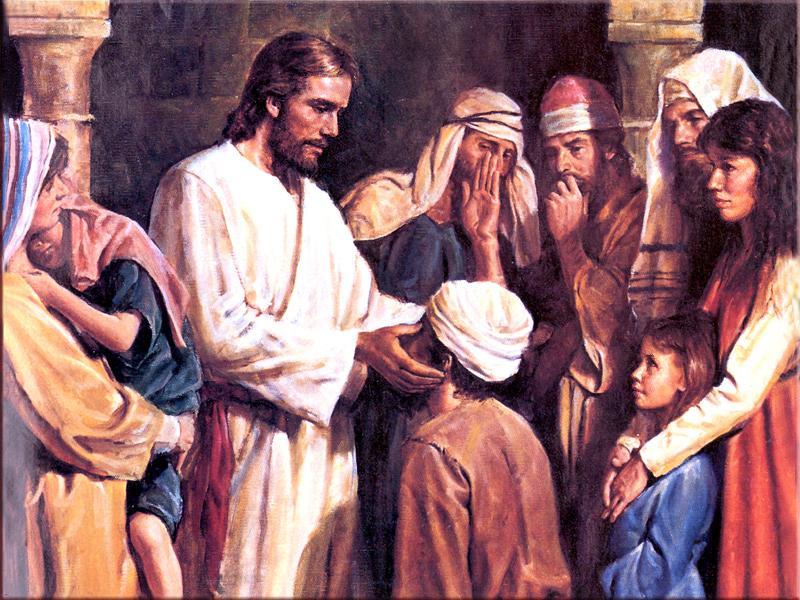
The Church on this day makes us celebrate the omnipotence of God and His infinite mercy in dealing with sinners. St. Paul repeats to the Corinthians the miraculous transformation which has taken place in him through the grace of God (Epistle).
The healing of the deaf and dumb, related by St. Mark, is the story of divine mercy towards each one of us (Gospel).
The Church in baptism has opened our ears and loosed our tongue so that henceforth we may hear the divine word and freely proclaim our faith.1
We have received help (Gradual). The Lord has healed our wounds (Offertory) and has given us strength and courage (Introit).
- During the ceremonies of baptism, the priest takes aliva with his finger and touches the ears and the nostrils (above the lips) of the newly baptized, saying: Ephpheta, that is to say: Be open.
Double of the Second Class White Vestments
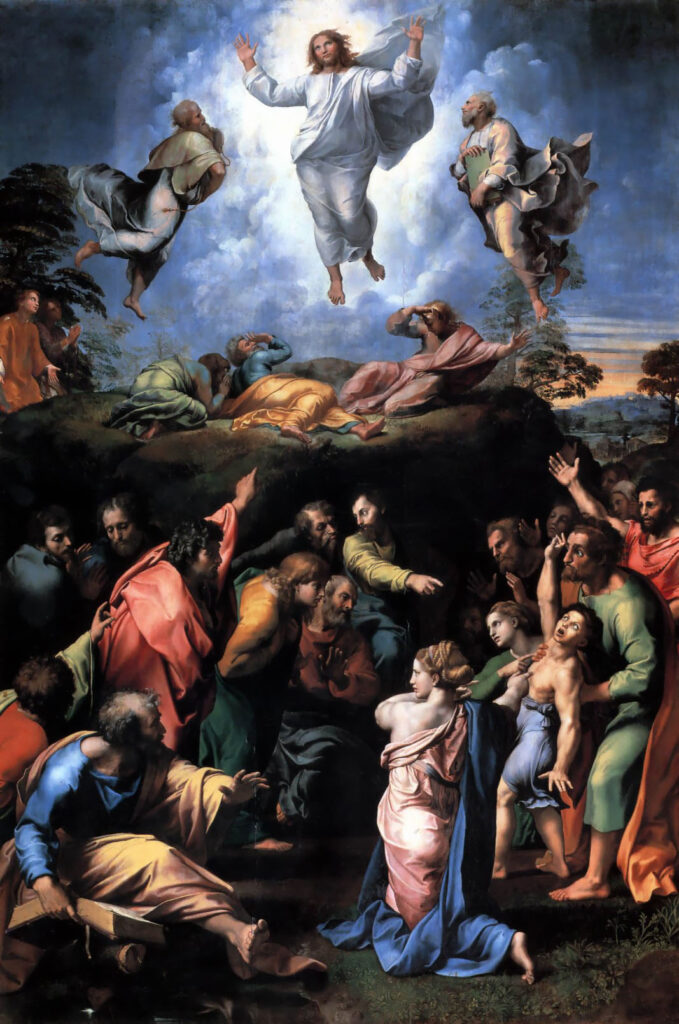
Today, Jesus shows His glory so that His disciples might know Him better. The feast of the Transfiguration of Jesus has long been solemnized on August 6, in different churches of the East and West. Callistus III extended it to the whole Church, to commemorate the victory of John Hunyady over the Turks, near Belgrade, in 1456, and which was announced at Rome on August 6.
Pius X raised it to the rank of double of the second class, for it is the title-feast of the Cathedral of Rome (St. Savior and St. John Lateran).
Semi-double Green vestments
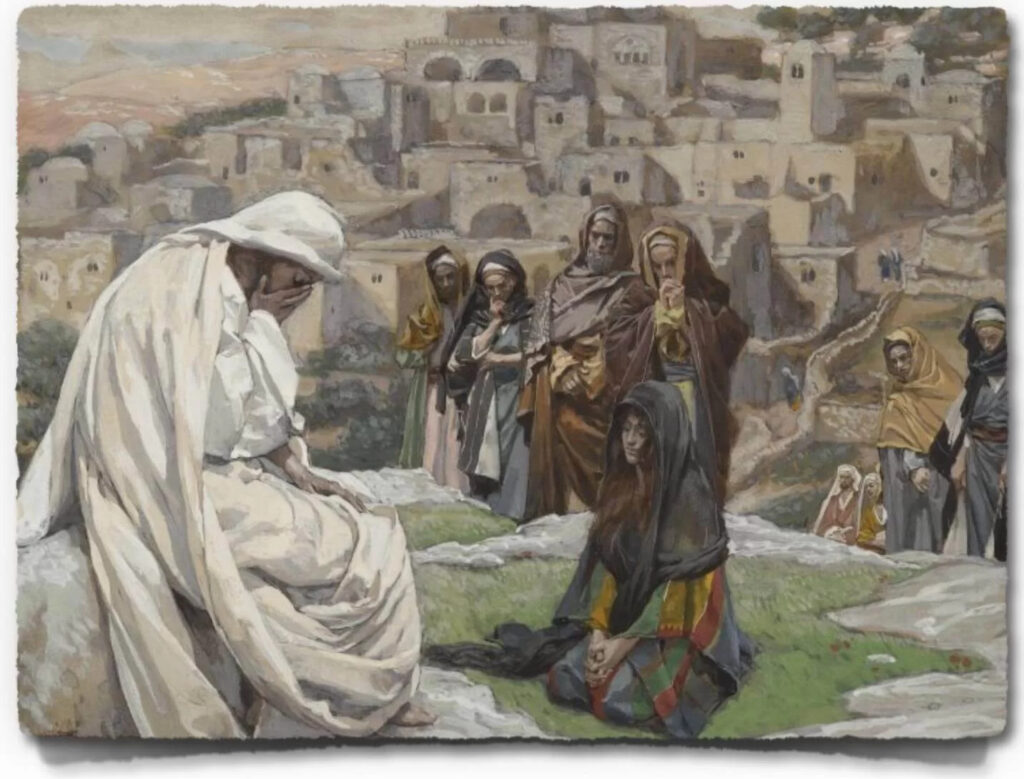
This day’s liturgy puts before us in the Epistle, the terrible punishment incurred by the Israelites in the desert on account of their immorality and irreligion. Likewise, over a million Jews perished when Jerusalem was destroyed for having rejected the Messias (Gospel). They were thrown out of the kingdom of God as the sellers were driven from the temple, which is its figure, for having transformed the house of prayer into a den of thieves (Gospel). The Gentiles, called in their stead, must therefore be faithful to their vocation and take care not to fall in their turn (Epistle).
“Give an account of thy stewardship.” (Gospel)
Semi-double Green vestments
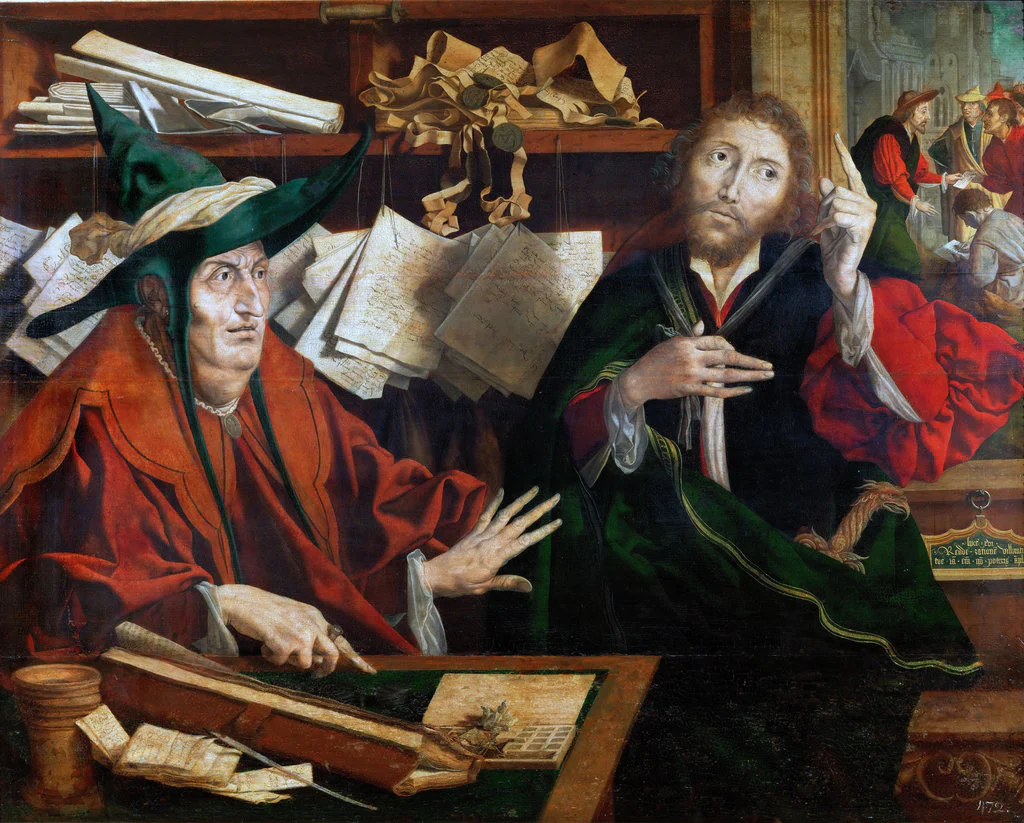
The Epistle reminds us of our divine filiation, and the Gospel in a parable tells us of the duties thereby entailed.
We are the children of God, since we may say in all truth: Our Father (Epistle). God has given us life, “wherefore we must live according to His will” (Collect).
Just as this rich landowner who, before giving his son his share of the heritage, wishes to test his administrative capability, by entrusting to him things of little value, God, before making us His heirs in heaven, has wished to test our fidelity by giving us the management on earth of both temporal and spiritual goods. But, like the steward mentioned by Jesus, we have been unfaithful, dissipating by sin the riches and talents which God entrusted to us. Therefore, vying in zeal with the children of the world, the sons of light imitate the foresight of the steward who, by means of his father’s riches, prepared friends unto himself. Turning to profitable use what God has given to us, let us do good, and especially by almsgiving let us secure the testimony which the poor will bear their benefactors at the moment when all will have to give an account of their stewardship to the divine Judge.
Every Parish Priest celebrates Mass for the welfare spiritual and temporal of his Parishioners.
Greater Double White vestments
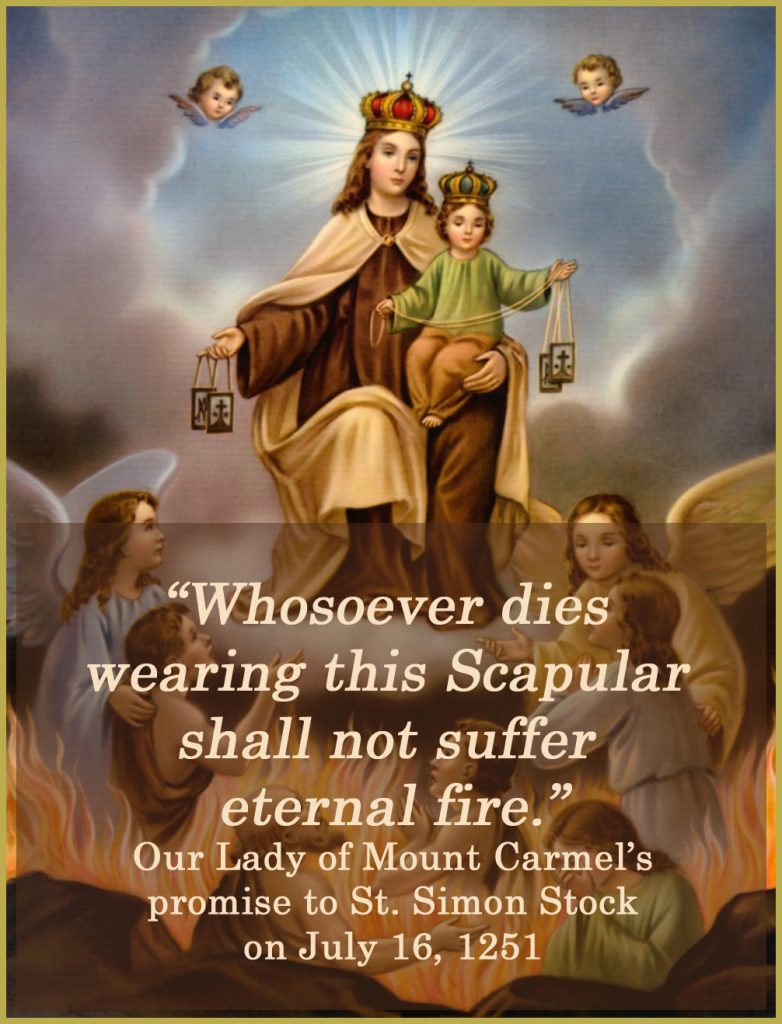
According to a pious tradition, a number of men who walked in the footsteps of the holy Prophets Elias and Eliseus, and whom John the Baptist had prepared for the advent of Jesus, embraced the Christian faith, and erected the first church to the Blessed Virgin on Mount Carmel, at the very spot where Elias had seen a cloud arise, a figure of the fecundity of the Mother of God. They were called: Brethren of Blessed Mary of Mount Carmel (Collect). These religious came to Europe in the thirteenth century and in 1245 Innocent IV gave his approbration to their rule under the generalship of Simon Stock, an English saint.
On July 6, 1251, the Blessed Virgin Mary appeared to St. Simon Stock who was then the Superior General of the Carmelite Order, placed in his hands the habit of the Carmelites, and said, “Take, beloved son, this scapular of thy order as a badge of my confraternity and for thee and for all Carmelites a sign of grace. Whoever dies in this garment will not suffer everlasting fire. It is a sign of salvation, a safeguard in dangers, a pledge of peace and of the covenant.” Innocent IV blessed this habit and attached to it many privileges, not only for the members of the Order, but also for those who entered the Confraternity of Our Lady of Mount Carmel. By wearing the small scapular, they participate in all their merits and may hope to obtain through the Virgin a prompt delivery from Purgatory (John XXII in the Sabbatine bull, March 3, 1322). The feast of Our Lady of Mount Carmel was extended to all Christendom by Benedict XIII, in 1726.
Semi-double Green vestments
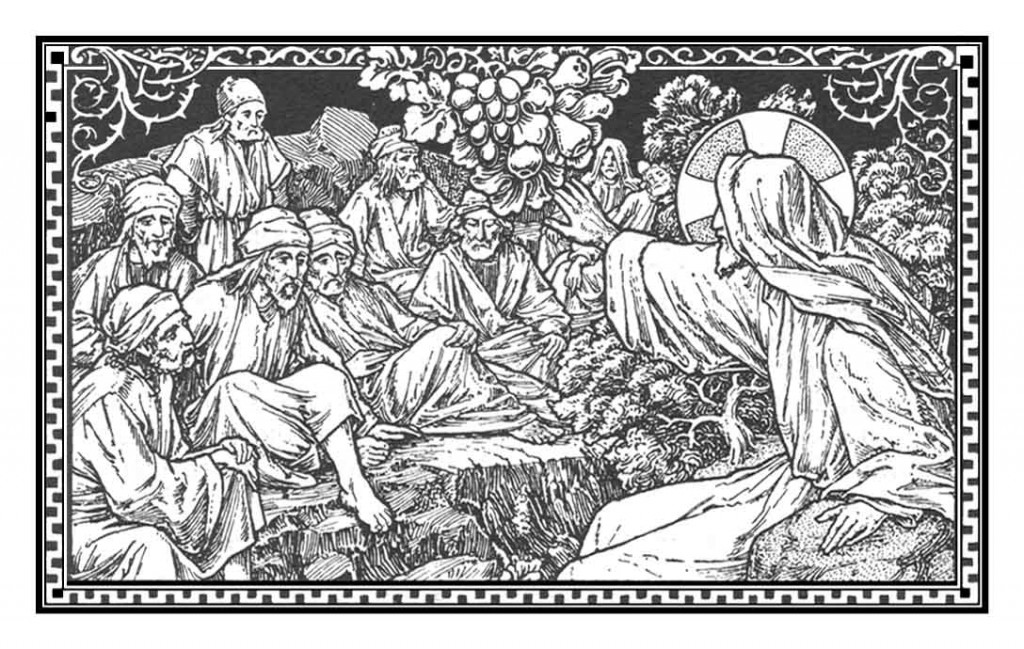
Divine life shows itself in acts. St. Augustine, explaining the Introit, says that “hands and tongue must agree together, the one glorifying God and the other acting accordingly”. The Gospel declares that it is not those who say: “Lord, Lord” who will enter the kingdom of heaven, but those who do the will of the Father. A tree is judged by its fruit. If good species give “grapes and figs”, there are also “thorns and thistles” on which none are gathered. Therefore, “they shall be cut down and thrown into the fire” (Gospel). What fruit, adds the Apostle, have you gathered from sin, except shame and eternal death? whilst “by serving God, you produce fruits of holiness and win eternal life” (Epistle).
"Listen carefully, my son, to the master's instructions, and attend to them with the ear of your heart. This is advice from a father who loves you: welcome it, and faithfully put it into practice"
~ St. Benedict of Nursia ~
Copyright © 2015-2025 Saint Joseph Catholic Church, Latin Mass Parish, 602 S 34th St., Tacoma, WA 98418. All Rights Reserved.
Website comments or questions: info@saintjosephtacoma.org


